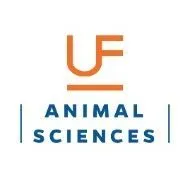The target audience for this publication is beef cattle producers, state and county Extension faculty, and university administrators interested in beef production systems and the impact that some of the UF/IFAS Extension programs have on stakeholders.
Florida Bull Test
The Florida Bull Test was established in 2000 at the UF/IFAS North Florida Research and Education Center (UF/IFAS NFREC). Since then, the Florida Bull Test has served as one of the premier educational efforts for the improvement of beef cattle genetics in the southeastern United States. The objectives of the Florida Bull Test are: 1) to provide purebred operations with useful information to improve the genetic selection of their bulls, ultimately improving the offer of superior bulls in the regions; and 2) to provide cow/calf producers with a source of bulls that have been tested on a common location and screened for structural and breeding soundness. In addition, the test provides an opportunity to seedstock producers to advertise their breeding programs and market their bulls. The Florida Bull Test consists of two phases, in which bulls are placed in pens at the UF/IFAS Feed Efficiency Facility (FEF) for 56 days, with individual feed intake being recorded, then spend an additional 56 days on pasture where bulls continue to receive free-choice access to the same diet previously provided at the FEF. At the end of the 112-day test, an overall ranking is established based on an index that includes average daily gain, weight per day of age, and residual feed intake.
The 20th edition of the Florida Bull Test Sale took place at UF/IFAS NFREC in January of 2020. The sale grossed $159,900, with an average of $2,805 per lot, $201 more than the average sale price of the bulls during the 2019 sale. In celebration of the 20th anniversary of the Florida Bull Test Sale, a paper-based anonymous survey of potential buyers and consignors was conducted to assess the impact of this Extension program in the region. A similar survey with potential bull buyers was conducted on the sale day in 2014 (Mercadante et al. 2014). From the 2014 survey, it was observed that 75% of potential buyers perceived an increased value of $50 or more per calf sired by bulls purchased at the Florida Bull Test, with 8% of those respondents stating a perceived increase of $125 or more in value per calf sired. For the 2020 survey, we also wanted to understand whether the cow/calf producer perception regarding the Florida Bull Test has changed since the last survey in 2014. We also wanted to identify new opportunities for improvement.
Florida Bull Test Potential Buyer Survey
The goal of the survey was to identify the characteristics of bull buyers and their perception of the value of purchasing a bull from the Florida Bull Test to their operation. A total of 52 potential buyers volunteered to complete the survey. All buyers who responded to the survey had their beef farms located in Alabama (40.4%), Florida (42.3%), or Georgia (17.3%) (Figure 1).

Credit: Gleise M. Silva and Nicolas DiLorenzo, UF/IFAS
Almost 70% of potential buyers purchase bulls at least every two years (Figure 2). Fifty-one percent of buyers had purchased bulls from the Florida Bull Test in the past, and 80% of those buyers had purchased at least two bulls.

Credit: Gleise M. Silva and Nicolas DiLorenzo, UF/IFAS
The buyers were asked to rank the traits they use when purchasing a bull from the Florida Bull Test, with 1 being the most important and 6 being the least important (Table 1).
Table 1. Bull traits ranked by Florida Bull Test potential bull buyers when considering purchasing a bull, with 1 being the most important and 6 being the least important.
Breed and phenotype were ranked as the most important traits when purchasing a bull, followed by performance in the test, pedigree, sale price, and feed efficiency. When asked what improvements they expected to their operations when purchasing bulls from the Florida Bull Test, 31.5% of potential buyers expected increased calf performance; 29.2% expected improved genetics of the cow herd; 17.7% expected improvement in feed efficiency; 11.5% expected decreased health risks; and 10% expected increased cost benefits. Zero percent of potential buyers reported no expected improvements to their operations when purchasing a bull from the Florida Bull Test (Figure 3). Additionally, 83.3% of potential buyers stated a perceived increased value of $50 or more per calf sired by a bull from the Florida Bull Test. Almost 12% of potential buyers stated perceived value exceeding $120 per calf sired (Figure 4). Thus, overall, buyers in the 2020 survey indicated that calves sired from bulls purchased from the Florida Bull Test have a perceived increased value of $67/head or more. This estimate is $17 more per calf compared with the responses to the same question in 2014.

Credit: Gleise M. Silva and Nicolas DiLorenzo, UF/IFAS

Credit: Gleise M. Silva and Nicolas DiLorenzo, UF/IFAS
Florida Bull Test Consignor Survey
In addition to applying the survey to potential bull buyers, a survey to identify the characteristics of bull consignors was also performed this year at the Florida Bull Test sale day. Eleven potential bull consignors completed the survey. Most consignors had operations located in Florida (45%), followed by Alabama (27%) and Georgia (27%). Thirty-six percent of respondents to the survey have been a consignor at the Florida Bull Test for more than 14 years, in which 60% of them have sold more than 10 bulls total. When asked to rank reasons to sell bulls at the Florida Bull Test on a scale from 1 to 5 (with 1 being the most important and 5 being the least important), respondents ranked the integrity of the staff as most important, followed by integrity of the data and individual feed efficiency information, opportunity to identify buyers, sale value, and finally, diet type (Table 2).
Table 2. Reasons for consigning at the Florida Bull Test ranked by bull consignors, with 1 being the most important and 5 being the least important.
When asked about the changes they have made on their operations based on the information received at the Florida Bull Test, 32% stated that they have implemented a genetic selection of the herd, followed by bull development programs (20%), artificial insemination (16%), breeding soundness exam (12%), and estrus synchronization (12%). Only 8% of the consignors stated that no changes have been made to their operations since their involvement with the Florida Bull Test (Table 3).
Table 3. Changes made to operations by bull consignors based on the information received from the Florida Bull Test.
In addition, 63.75% of bull consignors stated an increased value of $400 or more per bull consigned, while almost 10% perceived a value greater than $1,000 per bull consigned at the Florida Bull Test (Figure 5).

Credit: Gleise M. Silva and Nicolas DiLorenzo, UF/IFAS
The survey successfully identified which characteristics of bulls are most important for buyers as well as why consignors are involved in the Florida Bull Test. As observed in 2014, the perception of bull buyers and consignors is that purchasing or selling bulls from the Florida Bull Test increases the value of their operations by improving performance, genetics, and feed efficiency of their herds. For 20 years, the Florida Bull Test has been a helpful educational program to improve herd efficiency, thereby improving the production and profitability of beef cattle producers in Florida and the Southeast United States.
Reference
Mercadante, V. R. G., D. D. Henry, F. M. Ciriaco, P. M. Mercadante, T. Schulmeister, N. DiLorenzo, and G. C. Lamb. 2014. Potential Bull Buyers Perceive Increased Value to Their Operations When Purchasing Bulls from the Florida Bull Test. AN313. Gainesville: University of Florida Institute of Food and Agricultural Sciences.



